Audience stunned as Berlin concert becomes a political protest
mainHere are two accounts of what happened at the Komische Oper on Friday night. The first is by the soloist, Gabriela Montero. The second is by an audience member, the German-based pianist Igor Levit.
Gabriela first:
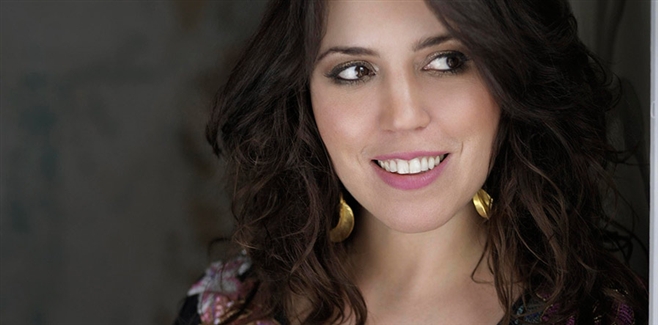
There are many ways to break the silence that has enveloped the Venezuelan tragedy for so many years. What happened at the Komische Oper on Friday, just as Mirga, the orchestra and I were about to begin Tchaikovsky’s Concerto No.1, was as shocking and desperate, as it was deeply moving.
To our surprise, a Venezuelan man and woman sitting in the front row, far left, rose to their feet and began to sing the Venezuelan National Anthem. Everyone was taken aback. I turned my body towards them, to listen, observe and admire the courage it took for these two people to break the silence, the sacred aura of this temple of classical music.
Who does that? How dare they?
I’ll tell you who and why.
Two people who have lost and suffered so much, who have had so much stolen from them and their families, that they knew that bringing Venezuela to that audience in that moment, and therefore, rupturing the silence and attention that is devoted seconds before the first notes of the music that represents the best of humanity, was as relevant a moment as there ever was to wake the world up of its complacency towards devastation.
After a few minutes of the audience listening attentively, which I must say I do appreciate given that most of them did not understand this act of protest and call for help, Mirga began the concerto. I quickly turned to the piano, and began playing the most heart breaking and powerful rendition of this concerto I have ever given.
After the applause, as I usually do, I took the microphone to do my encore. I wore the new necklace I just had made with the colors of the Venezuelan flag, hung it around my neck, and sat down to explain to the audience what had just happened.
I began by saying,” I want to explain to you what just happened. This couple, whom I have never met, courageously sang our National Anthem, to remind the world that beyond these walls, of this safe concert hall, there are a great many people who are suffering. Our country, Venezuela, is suffering and living its most horrific history”.
At that point, a man yelled from the balcony in German, something to the effects of, ” This is not the place for those political things”.
Of course, I immediately backfired and firmly and loudly replied, ” MUSIC IS ABOUT HUMANITY, OTHERWISE, IT MEANS NOTHING”.
The public supported me with great applause, telling us they understood our message.
Two improvisations followed, and then a touching Lithuanian piece for strings that Mirga had asked me to improvise on.
Below is a photo of my necklace, as my personal way of bringing Venezuela with me to every concert platform, and as my way of telling the Venezuelan people I am always with them.
GM
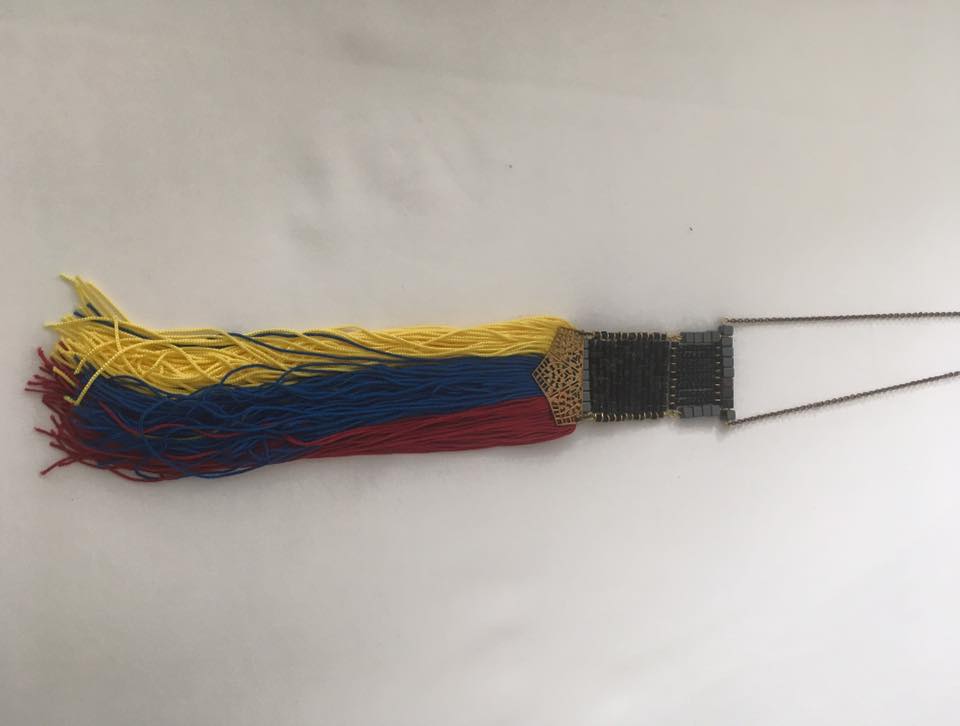
Now (lightly adapted from social-media English) Igor Levit:
Open thoughts about last night.
How many times have we heard all Tchaikovsky’s first Piano Concerto? How often we talk about how “great” the play is on the one hand, how much it is played ” up and down ” etc….
Last night, a very special concert took place at the Komische Oper. Gabriela Montero Mcelroy has just performed this piano concerto with Mirga Gražinytė-Tyla and the orchestra of the Komische Oper. When they were on stage and the conductor wanted to start, two young people suddenly jumped up in the first row and sang the national anthem of Venezuela. First goosebumps moment. The power … can hardly be reflected in words. What warmth, but the energy from Gabriela, who was visibly moved and overwhelmed (no one expected it to be sung, not even the two in the first row, who had met only a few minutes earlier in the foyer)…
What followed was the (most) touching b-minor concerto I could ever hear. Gabriela Montero didn’t interpret it, she told about herself, told us, took us with her, read us … witness. When a concert moves so much more than “interpretation”. the assessment criteria are shifting. It does not matter whether something loud or quiet, fast or slow, hard or soft, appropriate or inappropriate, together or not together. No, there’s something inexpressible and indescribable on these evenings. It creates life among all those involved. There was an artist on the stage, for which the music occupies an incredibly vital importance. She has no distance. She’s exposing herself. Their fight for their country, for their people, their suffering, their hope, which they live, and for which they stand, day by day, hour to hour, all that has been brought alive. She reminded us of every tone that was so intuitive, so breathing out of the wing, that we all suffer, hope, feel, and just to live. We all became music. Music was no longer decoration, she was present. I have the pages of the first sentence so painful, so proud, so moving never heard.
There are now people who believe that political speeches do not belong in a concert. Many artists also think that. It is not a question of speeches. It’s about awareness, about consciousness. Conscious of the fact that no artist, no person, should be hiding out in front of the world. So that every person, regardless of job and task, positioning, fighting, helping – must be human. Gabriela Montero is such a person. She gave all of us not only a wonderful Tchaikovsky concerto yesterday, no, she gave her music a moment that brought us closer to ourselves. I’m still overwhelmed and touched. And grateful.
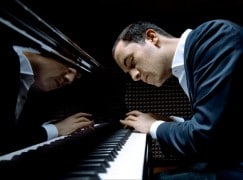


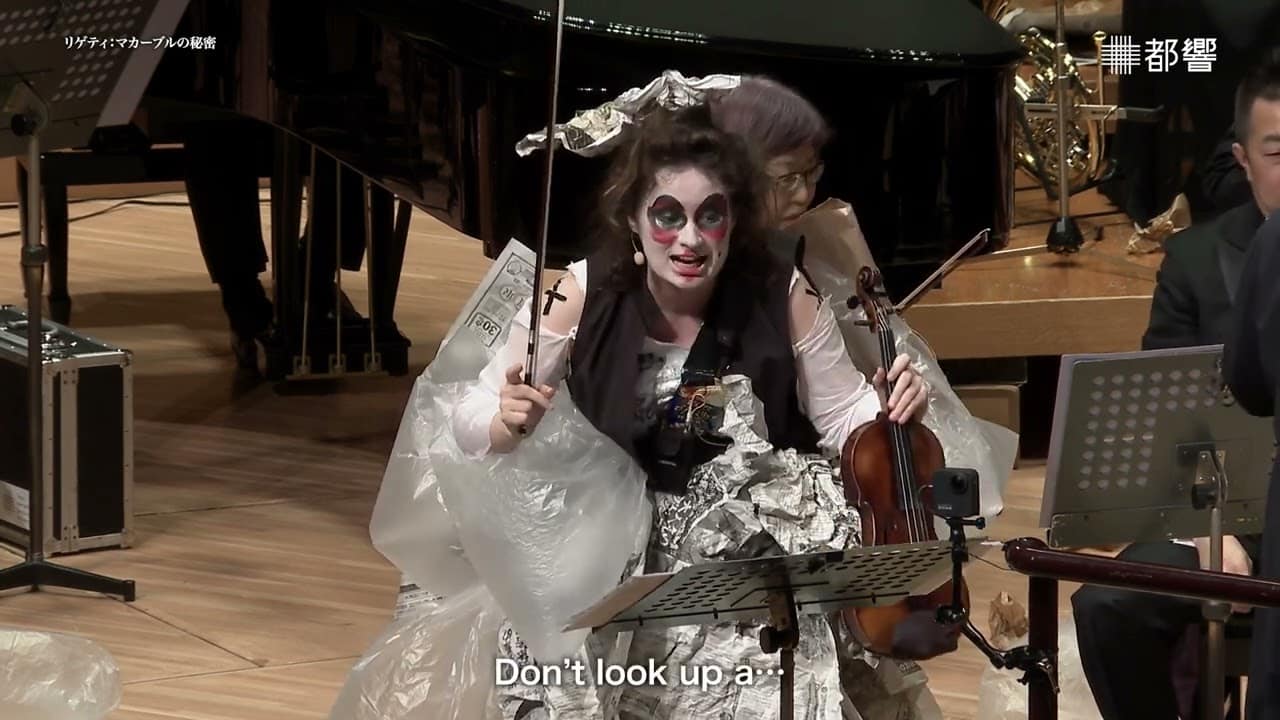
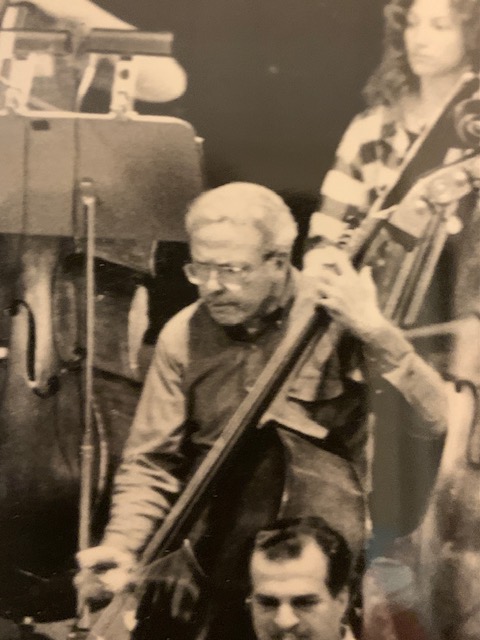

Comments